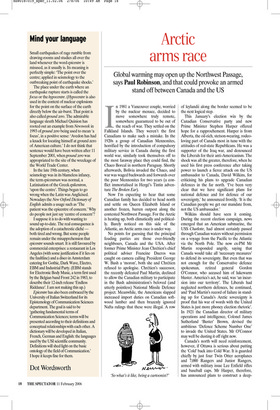Mind your language
Small earthquakes of rage rumble from drawing-rooms and studies all over the land whenever the word epicentre is misused, as it usually is. Its meaning is perfectly simple: ‘The point over the centre; applied in seismology to the outbreaking point of earthquake shocks.’ The place under the earth where an earthquake rupture starts is called the focus or the hypocentre. (Hypocentre is also used in the context of nuclear explosions for the point on the surface of the earth directly below the air-burst. That point is also called ground zero. The admirable language sleuth Michael Quinion has rooted out an example from Newsweek in 1993 of ground zero being used to mean ‘a focus’, in a positive sense: ‘Avedon has had a knack for locating himself at ground zero of American culture.’ I do not think that sentence would have been written after 11 September 2001, when ground zero was appropriated to the site of the wreckage of the World Trade Center.
In the late 19th century, when seismology was in its blameless infancy, the term epicentrum was normal, a Latinisation of the Greek epikentron, ‘upon the centre’. Things began to go wrong when the Latin was Anglicised. Nowadays the New Oxford Dictionary of English admits a usage such as ‘The patient was the epicentre of concern.’ Why do people not just say ‘centre of concern’?
I suppose it is to do with wanting to sound up-to-date. The real consequence is the adoption of a catachrestic cliché both tired and wrong. But some people remain under the misapprehension that epicentre sounds smart. It is still favoured by commercial enterprises: a restaurant in Los Angeles (with some justification if it lies on the faultline) and a disco in Amsterdam catering for Gothic, Dark Wave, Electro, EBM and Industrial Party. (EBM stands for Electronic Body Music, a term first used by the Belgian band Front 242 in 1983, to describe their 12-inch release ‘Endless Riddance’. I am not making this up.) Epicentre has also been embraced by the University of Italian Switzerland for its Epistemology of Communication Sciences department. The goal is said to be ‘gathering fundamental terms of Communication Sciences; terms will be presented according to their definitions and conceptual relationships with each other. A dictionary will be developed in Italian, French, German and English: the languages used by the USI scientific community. Definitions will shed light on the basic ontology of the field of Communication.’ I hope it keeps fine for them.














































 Previous page
Previous page